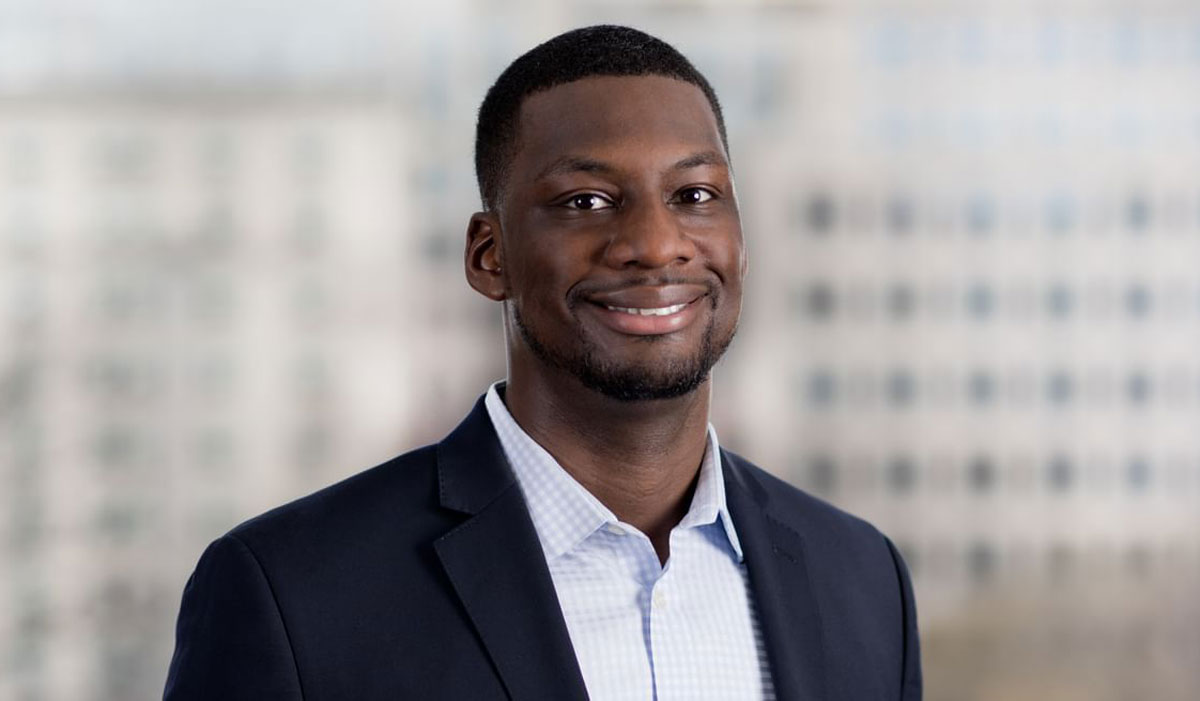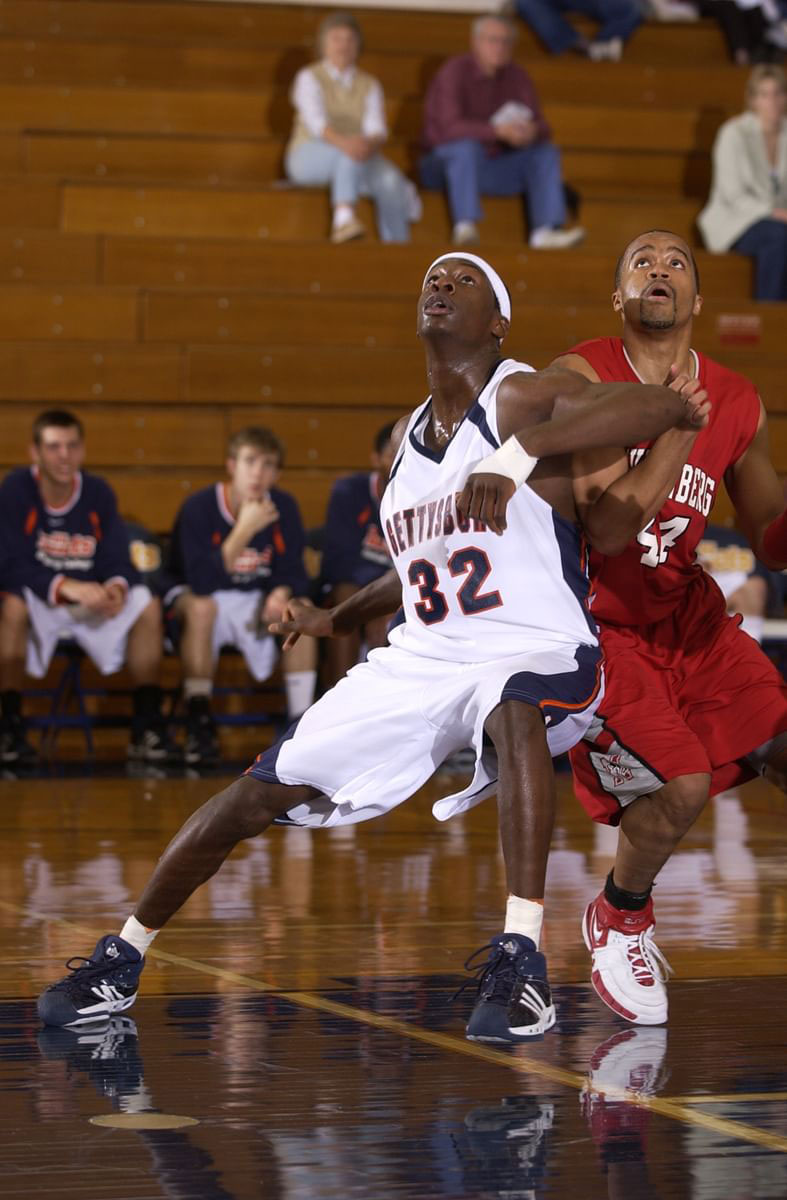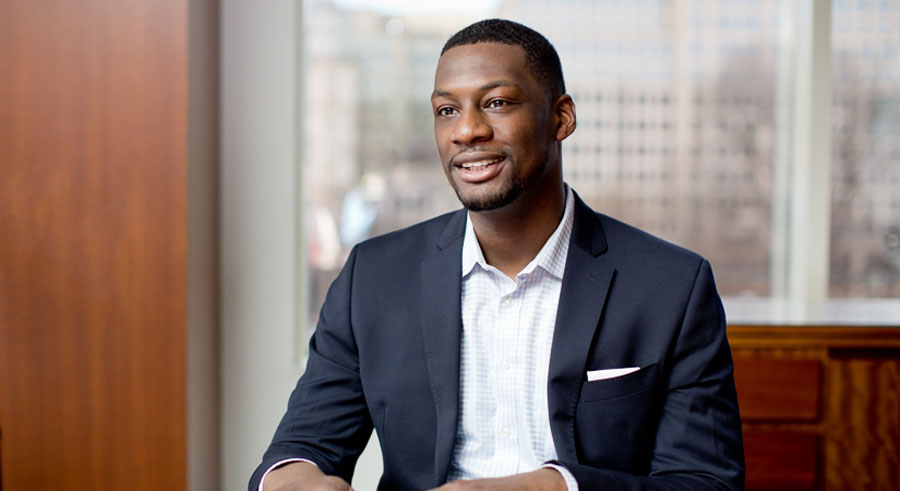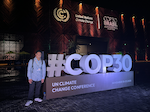

For Julius Redd ’07, environmental justice law is not just a profession, it’s personal. As a black man deeply involved in environmental issues, Redd is fully aware of the ways in which pollutants and corporate emissions disproportionately affect people of color, as well as the poor. A recent article in The Washington Post drives this point home, reporting that “nearly every source of the nation’s most pervasive and deadly air pollutant disproportionately affects Americans of color.”
“Some people have a much higher incidence of disease or negative effects just by virtue of where they live—through no fault of their own—because they are subject to higher levels of discharges and exposed to more pollutants,” says Redd, who majored in political science and minored in religious studies at Gettysburg before attending law school.
While Redd’s studies at Gettysburg didn’t focus on the environment, he credits his multi-dimensional experience as a student-athlete (he played basketball), his liberal arts education, and the lifelong friendships he made at Gettysburg as critical aspects of his success. “Gettysburg and its liberal arts approach exposed me to a variety of areas of study, honed my critical thinking skills, and prepared me to handle the wide breadth of issues that professionals are exposed to in the real world,” he says.

In the real world, Redd is now a partner based in Beveridge and Diamond’s Washington, DC office, where he represents clients in complex environmental and commercial litigation. In this role, he also counsels companies on how to proactively implement practices that are environmentally just. Environmental justice refers to the development and implementation of environmental practices, regulations, and laws that are conceived with fair consideration of the impact on all people, regardless of socioeconomic background, race, or other demographics.
He explains, “A lot of the conversations I have with corporations involve articulating the business case for environmental justice; I persuade them that proactively considering environmental justice makes good business sense as well as being the ethical thing to do.”
With a new administration and an elevated environmental focus nationally, Redd says he’s excited to do more. He’s exhilarated by the prospect of “corporations being able to conduct their business operations while also being innovative and thinking of ways to meaningfully consider the concerns of the communities in which they operate by instituting measures to protect those communities by, for example, implementing pollution control technology.”
Redd’s commitment to social justice has always run deep. At Gettysburg, he was a leader of the college chapter of the NAACP and was involved in student government pushing for equity practices. When Redd attended Rutgers Law School, he assisted pro bono in the release of an inmate who was wrongfully convicted of murder after serving 24 years in prison. Even now, after working on many pro bono projects related to immigration, education, and landlord/tenant matters and winning multi-million-dollar corporate cases, he considers the man’s release his greatest professional achievement.
After graduating from Rutgers and beginning private practice, he encouraged his current firm to participate in the Clemency Project 2014, which advocated for and assisted low-level, non-violent federal inmates obtain executive clemency under an Obama Administration program. He spearheaded the firm’s effort, and firm attorneys successfully secured clemency for two inmates on a pro bono basis. Additionally, President Obama commuted the sentence of a firm client to expire eight years earlier than the client’s original release date. In 2016, Redd was selected by the National Bar Association (NBA) as one of the 2016 recipients of “40 Under 40 Nation’s Best Advocates,” and the NBA’s Young Lawyers Division awarded him a Certificate of Appreciation for his work with Clemency Project in 2014.

In addition to his environmental justice work, Redd is a founder of the Men of Color Project (MoCP), an organization designed to build leaders in the legal sector, facilitate intergenerational support, and encourage community service and civic engagement amongst men of color in the legal profession.
He explains, “The Men of Color Project was a response to seeing male lawyers of color leave the profession after their first three or four years of practice. The Project is a means of providing a network of support and resources to newer attorneys during vulnerable stages of their careers, retain them, and ensure they’re successful.”
As someone who believes in the importance of mentors, Redd credits interdisciplinary studies Prof. Stephen Stern, who also teaches courses in the philosophy and religious studies departments, and Shirley Anne Warshaw, Professor of Political Science and Director of the Fielding Center for Presidential Leadership Study, for inspiring him. “I took a few religion courses with Professor Stern who was this young guy who made us all feel we could relate to him and connected learning to what felt modern and relevant to us, while Professor Warshaw is just brilliant and her passion for her subject is so inspiring. She taught me what a passionate professional looks like.”
Today, Redd embodies a passionate professional and says, “Environmental justice law allows me to give back to the community and help people who look like me, while also representing my corporate clients. It helps me fulfill my passions every day.”
By Katelyn Silva
Photos by David Sinclair and courtesy of Julius Redd ’07
Posted: 05/21/21


